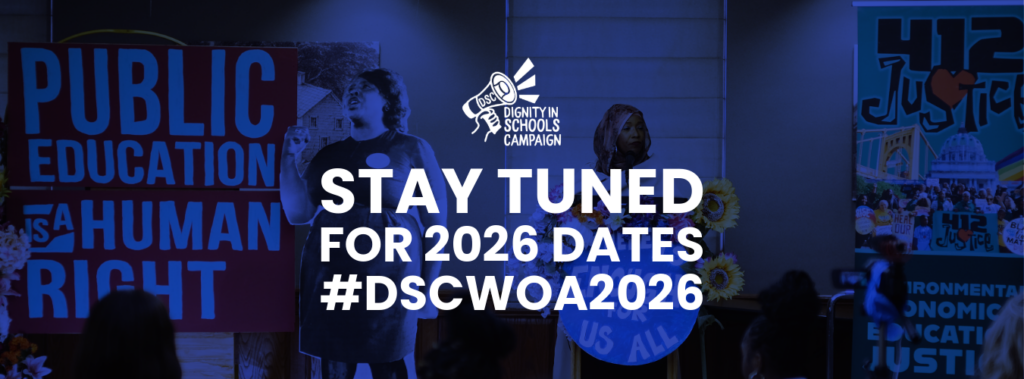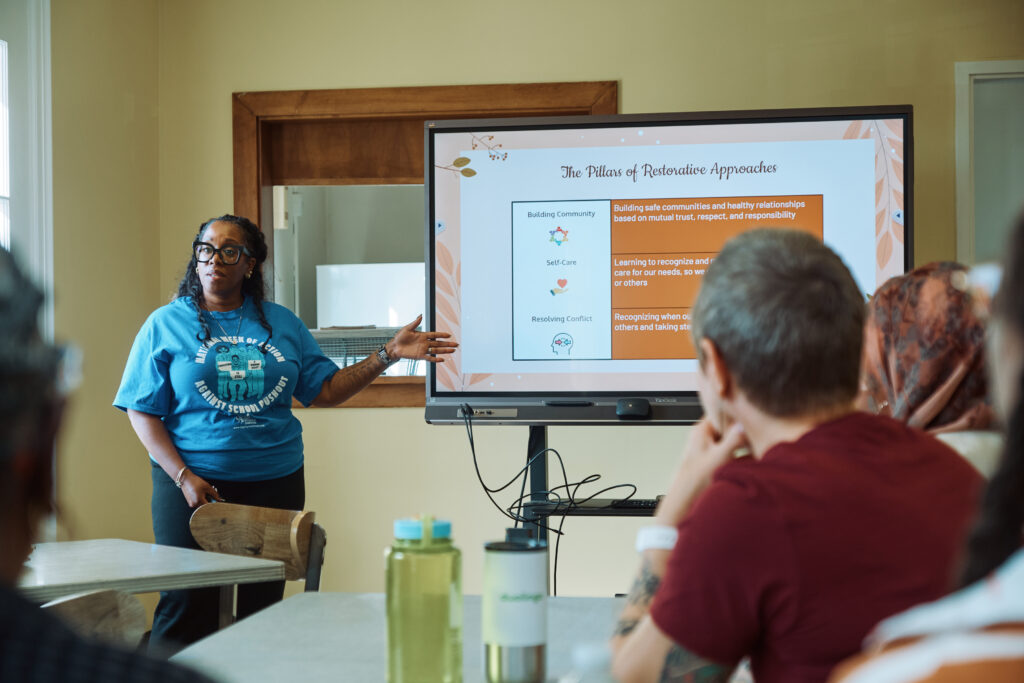National Week of Action Against School Pushout

2026 Week of Action Dates
OCTOBER 2026!
Why a Week of Action?
In 2009, the Dignity in Schools Campaign (DSC) launched the National Campaign Against School Pushout, with the National Week of Action (WoA) as its central public-facing moment. Over time, the WoA has become DSC’s flagship annual platform for mobilizing communities across the country to challenge the systemic forces that drive students — especially those most marginalized — out of school.
The idea is straightforward, but powerful: once a year, DSC member organizations across diverse regions host events — film screenings, community discussions, know-your-rights trainings, teach-ins, workshops, panels, and more — all aligned with a unifying national message. Locally rooted and nationally connected, these events become opportunities to educate, organize, and push for transformative shifts in how schools operate, discipline, and relate to students and families.
The Vision Behind the Week
At its core, the Week of Action captures DSC’s overarching vision: that students, parents, and communities should be treated as decision-makers in their own schools; that education must center healing, belonging, and justice; and that punitive, exclusionary systems have no place in the public school landscape. Through the WoA, DSC amplifies the possibility of schools as nurturing, inclusive, and humanizing institutions — not systems of control.
Why the Week of Action Matters
The WoA is more than a week of visibility: it is a strategic lever for movement-building and systems transformation. DSC uses it to:
- Elevate local struggles to national attention. When a community is battling policing in their schools or fighting for culturally responsive curricula, the WoA offers a platform through which that local fight is amplified, shared, and connected to a broader coalition.
- Build community voice and leadership. Students, parents, educators, organizers, and advocates use WoA events not just to inform, but to deepen collective analysis and sharpen strategies. Through workshop-based capacity building, storytelling, and collaborative planning, communities strengthen their capacity to press for change beyond that week.
- Shift the narrative and the frame. The WoA is an annual opportunity to reassert that education is a human right — not a commodity or a discipline factory. During the week, DSC pushes back on reductive assumptions that students are “discipline problems” and instead frames them as rights-bearing individuals deserving of dignity and care.
- Demand accountability and policy change. The week serves as a moment for advocacy and policy pressure — from school boards to state and district education agencies — for alternatives to punitive discipline, reductions in policing, and investments in culturally sustaining supports.
- Foster media and public engagement. By concentrating events and messaging into a defined window, DSC and its partners draw press coverage, social media amplification, and national attention, making it easier for communities to force the issue into public discourse.
How It Functions in Practice
Each year, DSC develops a theme that resonates with the current political climate and local struggles. Member organizations then plan locally grounded events tied to that theme, while DSC supports with national messaging, toolkits, trainings, and cross-site coordination. The week is intentionally elastic — events are hybrid (in person and virtual), and designed to suit different community strengths and capacities.
While the week is focused on public education and visibility, it also serves as a catalyst: it helps seed new organizing, deepen local campaigns, and forge connections among sites, so that conversations and commitments made during the week carry forward into sustained work throughout the year.

Join the Conversation

